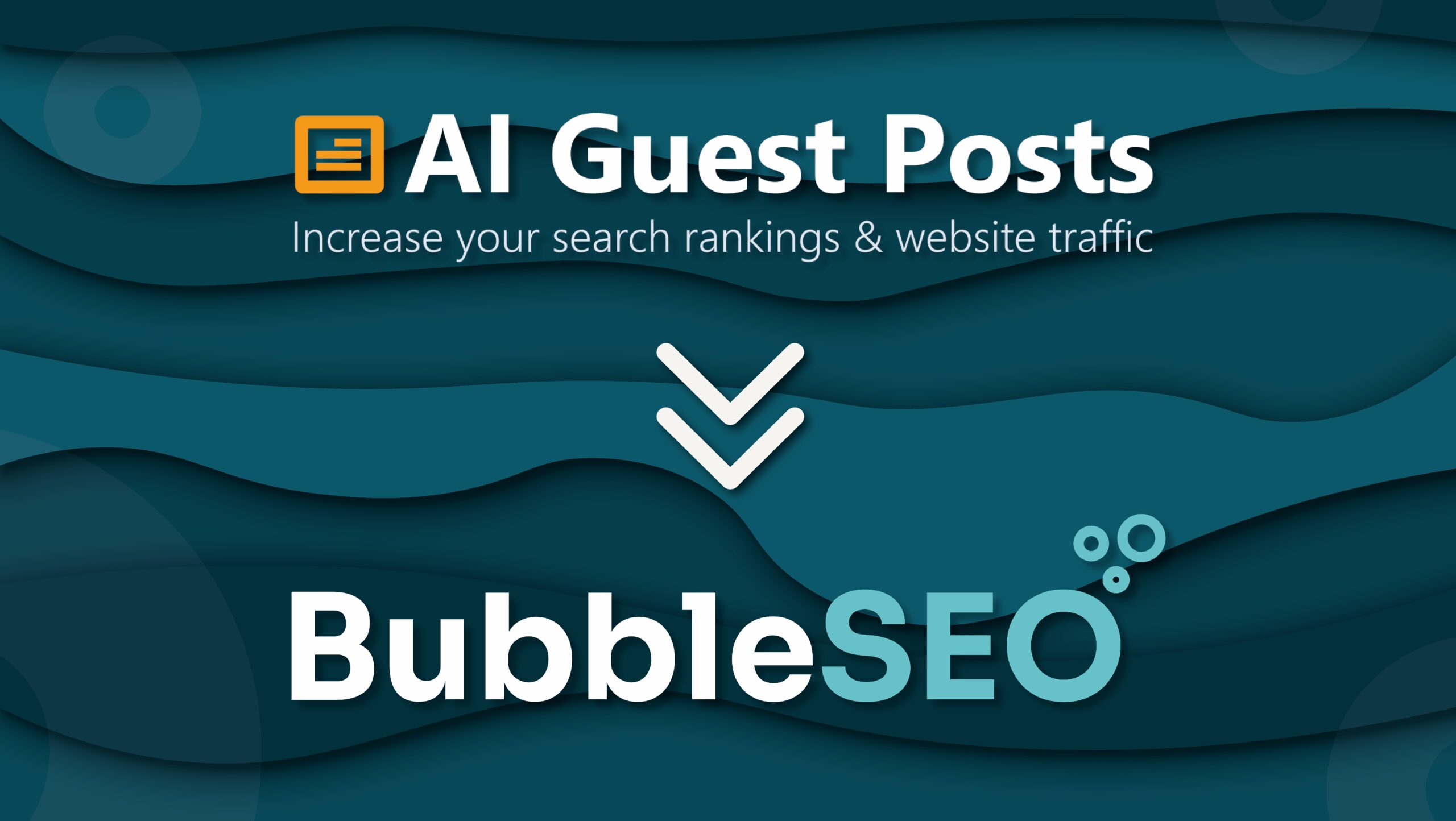
Guest Posting is a practice where individuals or companies contribute articles to other websites or blogs.

Brand awareness is the recognition of a brand or business by its name, logo, or any other defining features

Brand awareness is the recognition of a brand or business by its name, logo, or any other defining features. Being able to recognise a brand or business by these features boosts a brand above its competitiors. Brand awareness can be considered the first step of the customer journey, if customers are aware of your brand or products, they are more likely to buy into them.
By elevating your brand awareness, it can enable you to learn different ways to grow your business and its success. There are 3 things you ideally want your customer to know or recognise:
To create your brand awareness campaign and achieve these three points, you need to be giving informed and consistent communication to your customers. Firstly, you need to know what kind of awareness your brand already has before you can start work on improving it. Are you a brand-new business? Or have been around a little while and have some kind of following (even if it is small)?
To give you an indication of this you can look at things like your social media accounts and any way that you communicate to your customers: –
These are all measurable aspects so it doesn’t matter where you are starting from, once you have improved your brand awareness, you will be able to see the results in these figures. On your brand awareness journey, assess your starting point and think about the following methods and how you can implement these into your business, if you don’t already:
By investing time in your brand awareness, you will create an established brand that will meet the needs of your customers and more importantly keep them interested. By doing it in stages makes it a simple process to achieving a great brand, and remember you don’t have to do it alone – make it easier and more effective by using tools like AI Guest Posts, social media analytics, podcasts and collaborations with other brands!
Grow your business online with content marketing solutions from Bubble SEO today.
Place An Order
Guest Posting is a practice where individuals or companies contribute articles to other websites or blogs.

With lots of changes in the digital world, ensuring that your content reaches your target audience is equally crucial.

In the world of content marketing, one of the most powerful yet underutilised tools is the topical map. As SEO becomes more complex, building topical authority is essential for boosting rankings, user engagement, and overall content visibility. A topical map serves as a blueprint that guides content creation, allowing marketers to strategically cover every aspect of a subject to establish authority. In this post, we’ll explore what topical maps are, their main benefits, and how they can transform your content strategy. What is a Topical Map? A topical map is a visual representation of the relationships between different topics and subtopics within a specific content domain. Think of it as a web that connects everything you want to cover about a particular subject. For example, if your central topic is "Digital Marketing," a topical map would include interconnected branches to related subtopics such as "SEO," "Content Marketing," "Social Media," and "PPC." Each of these subtopics would also be broken down further into related concepts, creating a comprehensive framework for content creation. The image below provides an example of what a topical map might look like for the subject of Digital Marketing: The Benefits of Using Topical Maps in Content Strategy 1. Improved Topical Authority and SEO Performance One of the key advantages of using a topical map is that it helps build topical authority, which is crucial for SEO success. Search engines like Google have become increasingly sophisticated in understanding context and relationships between topics. By creating content that thoroughly covers a particular subject through interconnected subtopics, your website signals to Google that it is a credible source of information. This boosts your visibility in search engine results. Topical maps ensure that your content strategy is holistic, covering all relevant angles of a subject, which increases your chances of ranking for a wider array of keywords. For more details on how topical authority impacts SEO, check out this insightful article from Search Engine Journal. 2. Comprehensive Content Planning Creating a topical map makes content planning easier and more strategic. Instead of randomly generating blog posts or articles, you use the topical map to determine exactly what pieces are needed to fully cover a topic. This allows you to fill content gaps, address different user intents, and establish a clear publishing schedule. Using a tool like SEMrush can help you identify the key topics and subtopics that are relevant to your niche, ensuring that your content map is comprehensive. This approach keeps your content organised, reduces redundancy, and provides a clear roadmap for content teams. 3. Enhanced User Experience Topical maps also improve the user experience by allowing visitors to easily navigate through your content. When users land on your website looking for specific information, they are likely to explore related content if it's well linked and logically structured. By interlinking articles that cover different aspects of a subject, you create a seamless content journey that keeps users on your site for longer, reducing bounce rates and increasing engagement. By leveraging structured content interlinking, your users will appreciate the in-depth information provided, enhancing their trust in your brand. For tips on how interlinking can boost SEO and user engagement, refer to this guide by Moz. 4. Maximising Content Relevance and Covering Search Intent A topical map helps ensure that you are covering search intent for every stage of the buyer's journey. Whether users are looking for basic information, in-depth guides, or comparisons, your content needs to be relevant to what they are searching for. By mapping out various content types—from educational blog posts to product guides—you ensure that your website caters to all stages of the customer journey. This comprehensive coverage improves the likelihood that users will find exactly what they need, ultimately boosting conversions and building brand authority. For a deeper understanding of search intent and how to create content that addresses it, take a look at Ahrefs’ guide to search intent. The Role of Keyword Clustering in Topical Maps Keyword clustering is an essential component of building topical maps, as it ensures that related keywords are grouped together to effectively cover each subtopic. Instead of creating isolated content pieces targeting single keywords, keyword clustering helps you create pillar and cluster content that addresses multiple related search terms. How Keyword Clustering Boosts SEO Broader Coverage of Search TermsBy clustering related keywords, you improve your chances of ranking for a range of similar queries. For instance, instead of focusing solely on "content marketing strategies," you can create a cluster that also targets keywords like "content marketing plan," "content strategy examples," and "how to create content for marketing." This broader coverage signals to search engines that your content is thorough and relevant to the entire topic. Improved Content RelevanceWhen you target multiple related keywords within a topic, you enhance the relevance of your content to users and search engines. Using keyword clustering, you create a more interconnected content strategy that aligns with Google's goal of providing comprehensive answers. Tools like Keyword Insights can help you identify keyword clusters based on user intent, ensuring that your content aligns perfectly with what users are searching for. Reduced Keyword CannibalisationKeyword clustering also helps prevent keyword cannibalisation, where multiple pages on your website compete for the same search term. By grouping related keywords and assigning them to a specific piece of content, you avoid this issue and ensure that each page has its own distinct focus. How to Create a Topical Map for Your Content Strategy Building a topical map is a step-by-step process that involves careful research and planning. Here’s a short guide to help you get started: Step 1: Choose Your Main Topic Identify the core topic you want to build authority on. This should be relevant to your industry and of interest to your target audience. For instance, if you’re in the digital marketing space, your core topic could be “SEO Strategies for 2024.” Step 2: Research Subtopics Use keyword research tools such as SEMrush or Ahrefs to identify the most important subtopics related to your main topic. These could include elements like "On-Page SEO," "Technical SEO," "Link Building Strategies," etc. Step 3: Cluster Keywords Group related keywords into clusters based on their relevance to each subtopic. This will help you determine which keywords to target within each piece of content, ensuring you cover all relevant aspects comprehensively. Step 4: Create Pillar and Cluster Content Use the topical map and keyword clusters to create a pillar page—a long, comprehensive piece of content that covers your niche in depth. Develop cluster topics or subtopics that provide detailed information on specific aspects of the main topic. Ensure that all related content is well interlinked. Step 5: Review and Update Regularly Your topical map should not be static. As your industry evolves, update your map to cover new topics, trends, or changes in search intent. Keeping your content fresh and relevant will continue to boost your authority. Conclusion: Harness the Power of Topical Maps and Keyword Clustering Incorporating topical maps and keyword clustering into your content strategy is an effective way to build topical authority, enhance user experience, and boost your overall SEO performance. By providing comprehensive coverage of a subject and strategically creating clusters of supporting topics, you establish yourself as an expert, which in turn improves trust and visibility in search engine results. Start creating your topical map and clustering keywords today to take your content strategy to the next level, and make sure to keep evolving your approach as new trends and topics emerge.

Content Marketing is a key marketing driver for many businesses to grow their income and to engage a wider audience

When making a guest post, it is important to track your metrics of your site and help you to improve.

With Black Friday almost upon us, we have put together some tips of how you can get ahead with your socials

We're excited to announce that AI Guest Posts has undergone a transformative rebranding and is now known as Bubble SEO. This strategic move has allowed the business to develop within the digital landscape and highlight our commitment to providing digital marketing solutions tailored to enhance online visibility and engagement for our customers. Bubble SEO remains dedicated to delivering high-quality, targeted content and effective SEO solutions that align with evolving digital marketing trends. Here is a little more information about our brand and its services. Our services: At Bubble SEO, we specialise in three core services, with content writing being a new feature to the website: Guest Posting: Which aims to enhance your online presence with high-quality guest posts on authoritative websites, driving traffic and boosting your SEO rankings. Link Building: Helps build a robust backlink profile with strategic link building services that improve your website's authority and visibility. Content Writing: Provides engaging content for your audience with compelling content tailored to your brand voice and SEO needs. Benefits of Bubble SEO: We have now made changes to the booking process to simplify this, and updated the customer dashboard section in the hope to improve our existing values below: Enhanced Service Quality: With our rebranding comes a renewed focus on delivering top-notch services that exceed your expectations. Improved User Experience: Our new website offers a streamlined interface, making it easier for you to navigate and access our services. Expanded Network: Benefit from our expanded network of partner websites, ensuring broader outreach and better opportunities for your business. Loyalty Rewards: As a token of our appreciation for the continued support of our bookers, we have now introduced loyalty rewards: Exclusive Discounts: Enjoy special discounts as a loyal Bubble SEO customer, with the more points you acquire, the more exciting offers you will unlock. We're thrilled about this new chapter as Bubble SEO and look forward to continuing to be your trusted partner in achieving your digital marketing goals. Stay tuned for more exciting updates and announcements! Discover the new Bubble SEO and elevate your online presence today! Jennifer Hobson – Digital Marketing [email protected] Heather Ryan – Business Development [email protected]